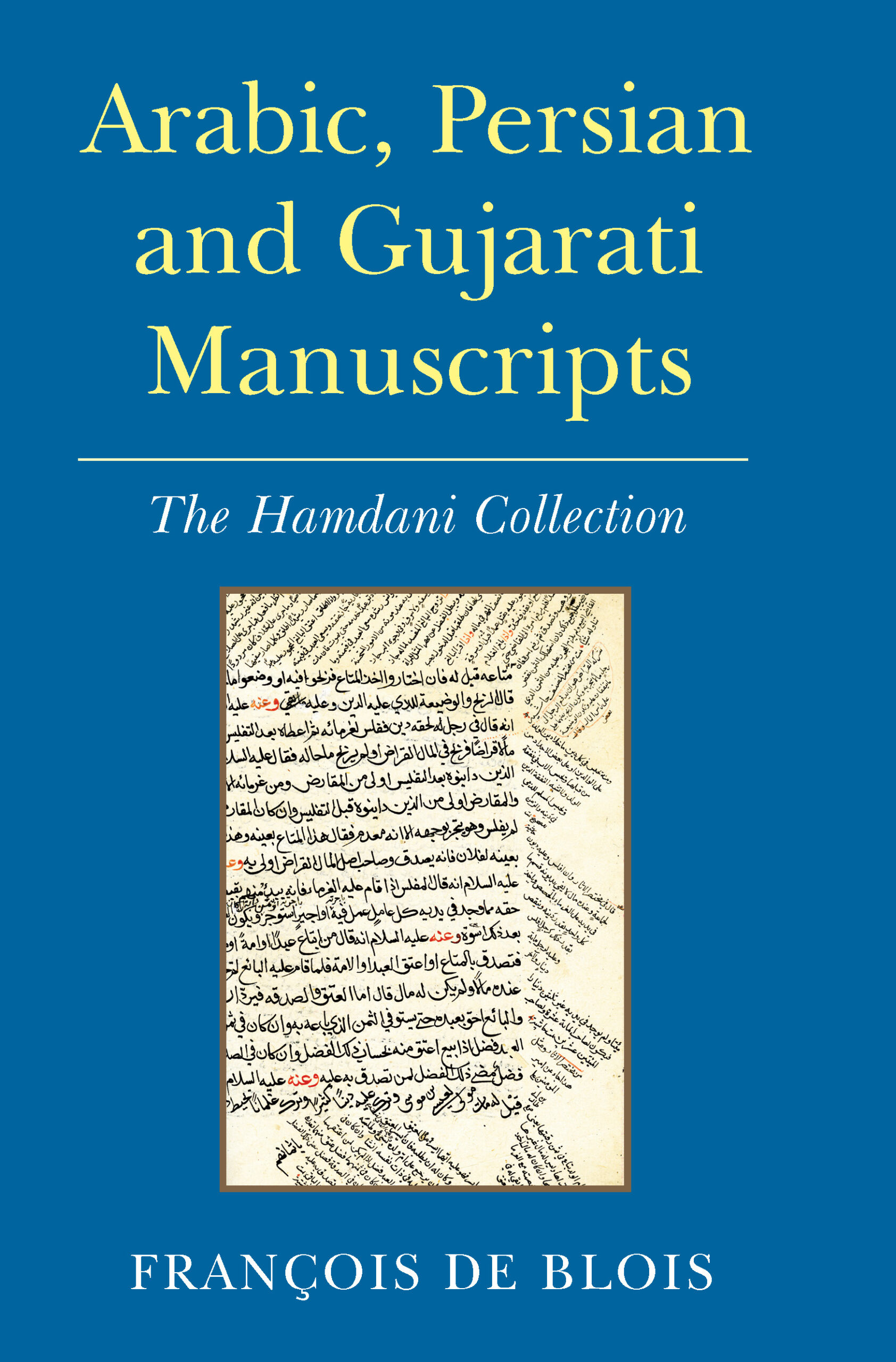The Muhammad Ali Hamdani Collection in the Library of The Institute of Ismaili Studies represents a large segment of the library collected over seven generations by an eminent family of scholars from the Dāʾudī BohraIndian community of Mustaʿli Ismailis, now found primarily in the Indo-Pakistan subcontinent, Yemen, Egypt and other parts of the world. community in India and the Yemen. The bulk of the manuscripts are Ismaili religious writings, but there are also a good number of interesting books of general Islamic, or indeed secular content, and these give a rare insight into the whole cultural range of a learned family of Indian religious scholars. The overwhelming majority of the books are in Arabic, but there are also a small number in Persian and in Bohra daʿwat language (lisān al-daʿwat), Gujarati in Arabic script. Most of the manuscripts were produced in India, but some of the most interesting ones are from the Yemen, the ancestral home of the Hamdani clan (the oldest of these is from the 14th century CE, or perhaps earlier). The catalogue contains detailed descriptions of the manuscripts in this Hamdani collection, discussing both the content of the works and the codicological features of the manuscripts. The introduction contains also a comprehensive history of the Hamdani family.
List of Illustrations
Acknowledgements
Introduction
Genealogical Tables
Notes on the Catalogue Entries
History of the Hamdani Collection of Manuscripts, by Abbas Hamdani
The Catalogue
I. Bibliographical Works
II. Ismaili Writings of the Older Yemeni School
III. Ismaili Authors in North Africa, Egypt and Persia during the Fatimid Period
IV. The ‘Treatises of the Sincere Brethren’ and Related Texts
V. Ismaili Authors of the Second Yemeni (Ṣulayḥid and Ṭayyibi) School
VI. Ismaili (Ṭayyibi) Authors in India
VII. Works by non-Ismaili Authors
a. Works on the Islamic religious science by non-Ismailis
(i) Zaydis
(ii) Twelver Shi‘is
(iii) SunnisAdherents of the majority branch of Islam, Sunnism; from the term sunnī which means a follower of the sunna of the Prophet Muhammad.
b. Arabic language
c. Arabic poetry
d. Ornate prose (adabA word of many meanings usually connoting courtesy, etiquette, rules and manners, civilisation, culture and literature., inshāʾ)
e. History (taʾrīkh) and genealogies (ansāb)
f. Philosophy (falsafa) and logic (manṭiq)
g. Mathematics and astronomy
h. Medicine and pharmacology
i. Occult arts (siḥr)
j. Manuscripts of mixed content
VIII. Miscellaneous, Unidentified and Unclassified Works
IX. Manuscripts in Gujarati Script
Index of Titles
Index of Authors
Index of Scribes
Index of Manuscripts Dated (or Datable) before CE 1800
Bibliography
François de Blois has published widely on Semitic and Iranian languages and on the history of religions in the Near East in pre-modern times. Notably, he contributed to the multi-volume work entitled Persian Literature, which had been initiated by C.A. Storey and published by the Royal Asiatic Society. He served as Professor of Iranian Studies at Hamburg University from 2002 to 2003. Currently he is a research fellow at University College London where he is engaged in a major project on al-Biruni’s Chronology and other Arabic texts on non-Islamic calendars. He is also a teaching fellow for Aramaic and Middle Iranian languages at the School of Oriental and African Studies, University of London. He has been a frequent contributor to the Encyclopaedia of Islam. His recent publications include the Arabic and New Persian sections of The Dictionary of Manichaean Texts, Volume II: Texts from Iraq and Iran, edited by François de Blois and Nicholas Sims-Williams, Turnhout, 2006.

